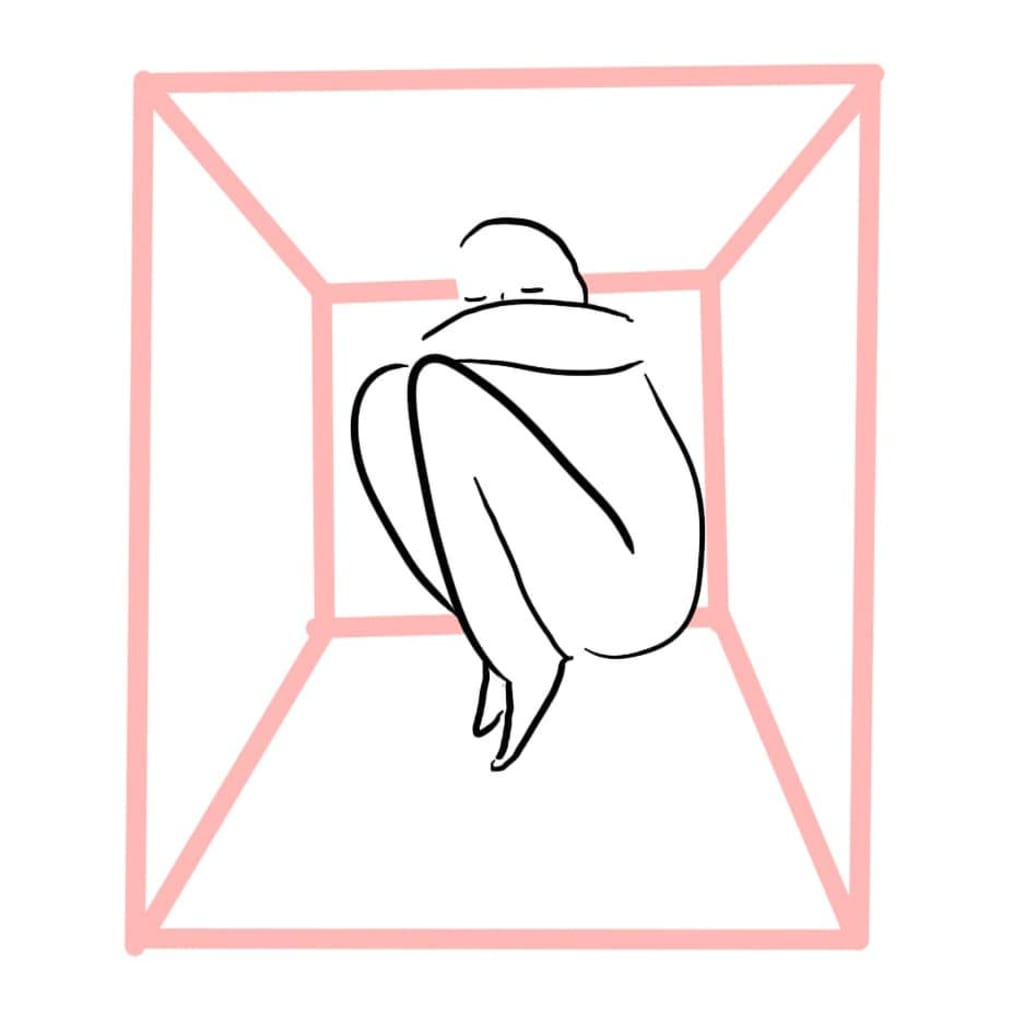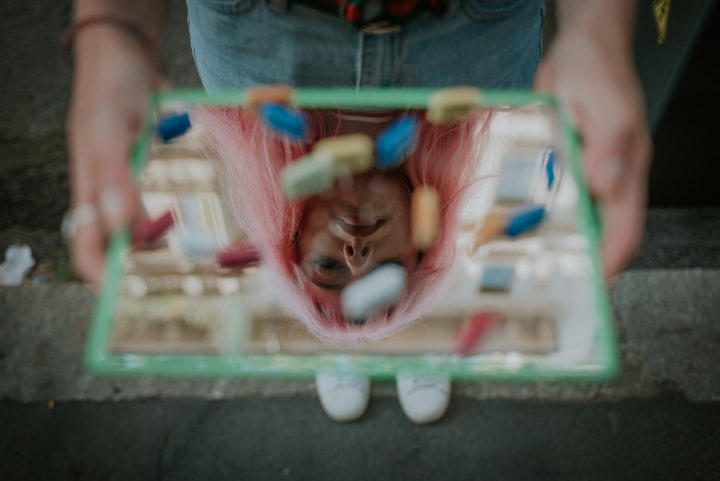How Our Bodies Are Holding Us Back
A Break-Down of Modern Day Body Image

Why is it we wonder, in an age that so glorifies the toil for perfection, how we've come to view our bodies through such a distorted lens? Our society praises those who strive, who suffer in the name of success, for the sake of admonishing those who settle- leaving us to question just who could dare to be seen as anything other than unattainable? As a collective, we've stripped ourselves of our humanity, layer by layer, in favour of growing a new skin: One of invincibility. We've come to associate being at our peak with being untouchable, but set it at too steep a climb for the majority to make- marking not only the expectation, but the demand that we reach the top, in a trembling flag at its summit.
In the midst of setting this precedent, we've seen the significance of social media in our day-to-day lives soar into new realms. With scouring our Facebook feeds, Snapchat stories and Instagram explore pages playing close seconds to opening our eyes to the world, the rate at which we're consuming online content has skyrocketed- and with this newfound prevalence has come an enhanced ability to influence the way we think. With the emphasis being placed on 'snatched' waistlines, hourglass silhouettes and curves in 'all of the right places', could it be said that we've come to equivalate being sexless with being worthless? Having this idea reinforced by the language and images broadcasted to us from the moment we first wake, to the moment we fall asleep?
Alongside our own responsibility for feeding these ideals could come that of those figure-heading today's pop-culture scene. The normalisation of the unachievable, at its essence, is a marketing scheme. These people, their bodies and faces, are serving as living advertisements for the self-acceptance we've been taught to reject at all costs- promising the means to assimilate, to look a way that guarantees perfection, in a waist trainer or a lip kit. These ploys are playing on the knowledge that we all have things we believe to be holding us back- blockades we consider to be standing between us and a realisation of our full potential, power or beauty and so, they sell that same capacity they've engineered the theft of right back to us. In the monetesation of Eurocentric features or a certain body type, these figures are offering us an opportunity to live in a previously unseen harmony with our bodies, an offer the insecurity we've come to live with can't resist.
The demand being placed on people, through the standards perpetuated by social media, to maintain unattainable online presences, could also be serving to distort our relationships with our bodies. There's a very real pressure to appear "unreal", with the word itself having become a popular compliment to describe the images we post of ourselves online- and, as of so far, we haven't stopped to question why it is we do, or are able to, draw gratification from such a place. Could it be said that, in the language we're using to describe one another, particularly those we believe to fit the standards we're bending our backs to meet, that we're affording our peers a sense of superiority? In deeming certain people "unreal", are we putting them above those whose appearances don't align with theirs? Are we not only forming, but issuing invitations to circles of the physically elite? And just what does that mean for those whose appearances fall outside of those "unreal" attributes? Alienation?
In repelling our own averageness, we've found ourselves propelled into a new age of insecurity and exclusion- yet still, we're opting not to stand up to it. Is that because it's easier to conform, or because we can't survive without the gratification it provides? The pull of a society that equivalates attractiveness to worth has proven momentous, with the recently emerging trend of Instagram modelling proving our dedication to reinforcing and celebrating these standards. Our obsession with appearing a certain way has created an opportunity for people to market themselves, receiving brand endorsements and audiences from the pull of their faces and bodies alone. Shouldn't we be asking what it says about us- that we can forge careers, amass fortunes, from having a particular set of features? That the way you look can potentially set you in a better stead for life?
Equally, should we be questioning whether embracing the notion of settling could have a similarly adverse effect? With obesity rates on the rise worldwide, could adopting a culture of complacency prove fateful for our health? In as many ways as we can argue that society's current standpoint has, and is continuing, to prove detrimental to our wellbeing, could it be that we need the fear it generates to take responsibility for it?
For now, perhaps our prerogative should lie with ensuring that, on an individual scale, we're working against the hold mainstream media has over us. Reclaiming ownership, bit by bit, will serve to make it that much harder for weapons and marketing tools to be fashioned from our bodies- and that much easier for control to be reinstated over the skins we live in.





Comments
There are no comments for this story
Be the first to respond and start the conversation.